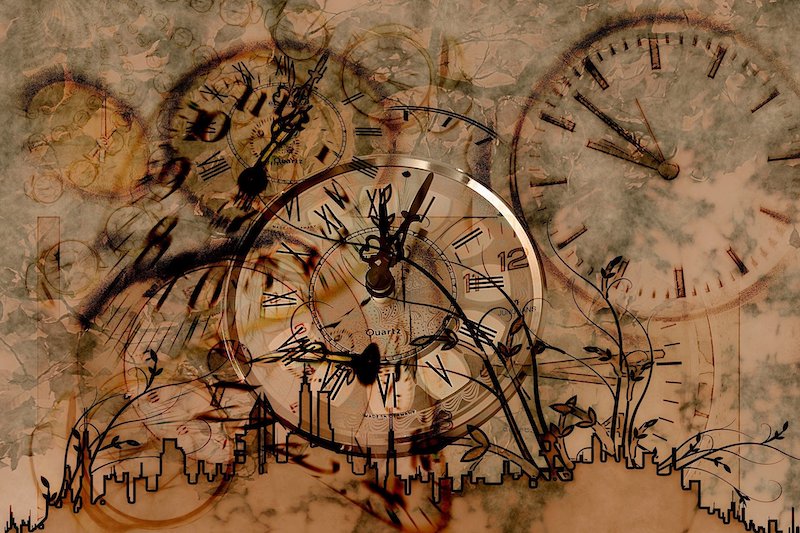The Time of Corona: Temporality, Crises and Loss
During the pandemic, we have all become time travellers. Not only do we find our time perception altered in the moment, but we notice our minds returning to shocks and losses from the past. Observing how the theme of time is emerging in his own client sessions during the coronavirus crisis, psychologist and author Brad E. Sachs suggests some ways of promoting thoughtful exploration.

A common thread that my patients weave through their narrative tapestries during the Covid-19 pandemic has to do with time:
“I can’t tell the days apart anymore, they all blur together.”
“When will this quarantine come to end?”
“Will I see my mother before she dies?”
“Before I know it, the hours have fled by, the day is over…”
“Without an actual graduation ceremony, how will I know I’m finally done with high school?”
“I don’t know when my grandchildren will visit me again, it’s killing me…”
Crises tend to collapse chronology, uncoupling us from the passage of time in its most familiar form. When we are deeply distressed, we may become more conscious of time, yet in other ways, time – at least as we typically understood it – appears to vanish altogether.
From my perspective, every psychotherapeutic session is an encounter with, and an investigation of, the feast of losses that life entails. But during crises such as the current pandemic, the inevitability of the most fundamental loss of all – the loss of life – becomes more lucid and more fearsome. And the recognition of our physical vulnerability forces us to reconsider time because we are reminded of the brute, unyielding force of mortality, our common denominator as human beings.
In his essay, ‘The Poetics of the Physical World’, poet Galway Kinnell observes that, ‘The subject of the poem is the thing which dies.’ To this thought we, as psychotherapists, might add, ‘The subject of the therapy session is the thing which dies,’ knowing that ‘the thing which dies’ is ultimately us, and those who matter to us.
It is in this context that I understand a time-related reflection that I frequently hear from patients these days, which has to do with how a departed loved one might be enduring the Covid-19 ordeal:
“I wonder how my dad would be handling this… he was always such a hypochondriac, he’d probably be making us all crazy right now, and rubbing his skin raw from handwashing.”
“I’ll tell you one thing, my mom would not be social distancing very easily… she was a people-person, couldn’t live without contact.”
“I spent every night with my wife when she was in hospice last year. I can’t imagine what it would be like if she were in hospice now and I could only window-visit her…”
Shocks and strains in the present always bring us back to shocks and strains in our past. So it is only natural that the more immediate prospect of our own death, or of the deaths of those who are close to us, returns us to previous losses that we have encountered and still mourn for. In that sense, we all become time travellers during a pandemic, ushered unexpectedly through the portals that silently reside between the stages in our lives.
This is one of the ways in which psychological treatment during this dark chapter can be of greatest value, because it helps our patients to temporarily inhabit a world within and outside of time, while still acknowledging time’s sovereignty.
With this in mind, patients may benefit not only from being encouraged to effectively structure their time as a way of getting through the quarantine, but also by thoughtfully detaching from that structure. I have found that some of the following comments and questions promote that process:
“I would like you to think not only about what you miss in your life, but who you miss from your life.”
“When was the first time you experienced a dramatic and unanticipated change in your life, and what do you recall? Who was and was not helpful to you in getting through that change?”
“When you look back on this experience months or years from now, what do you believe you will most vividly or evocatively remember?”
While there is nothing that we can do as therapists to keep our patients or their loved ones (or ourselves) alive during a pandemic, or at any point, we can still help them to more gracefully dance to the music of time, rather than vainly attempting to escape from it or futilely trying to conquer it. Choreography of this sort protects us from the dangerous undertow of despair and carries us closer to the welcoming shores of consolation, compassion, and connection.